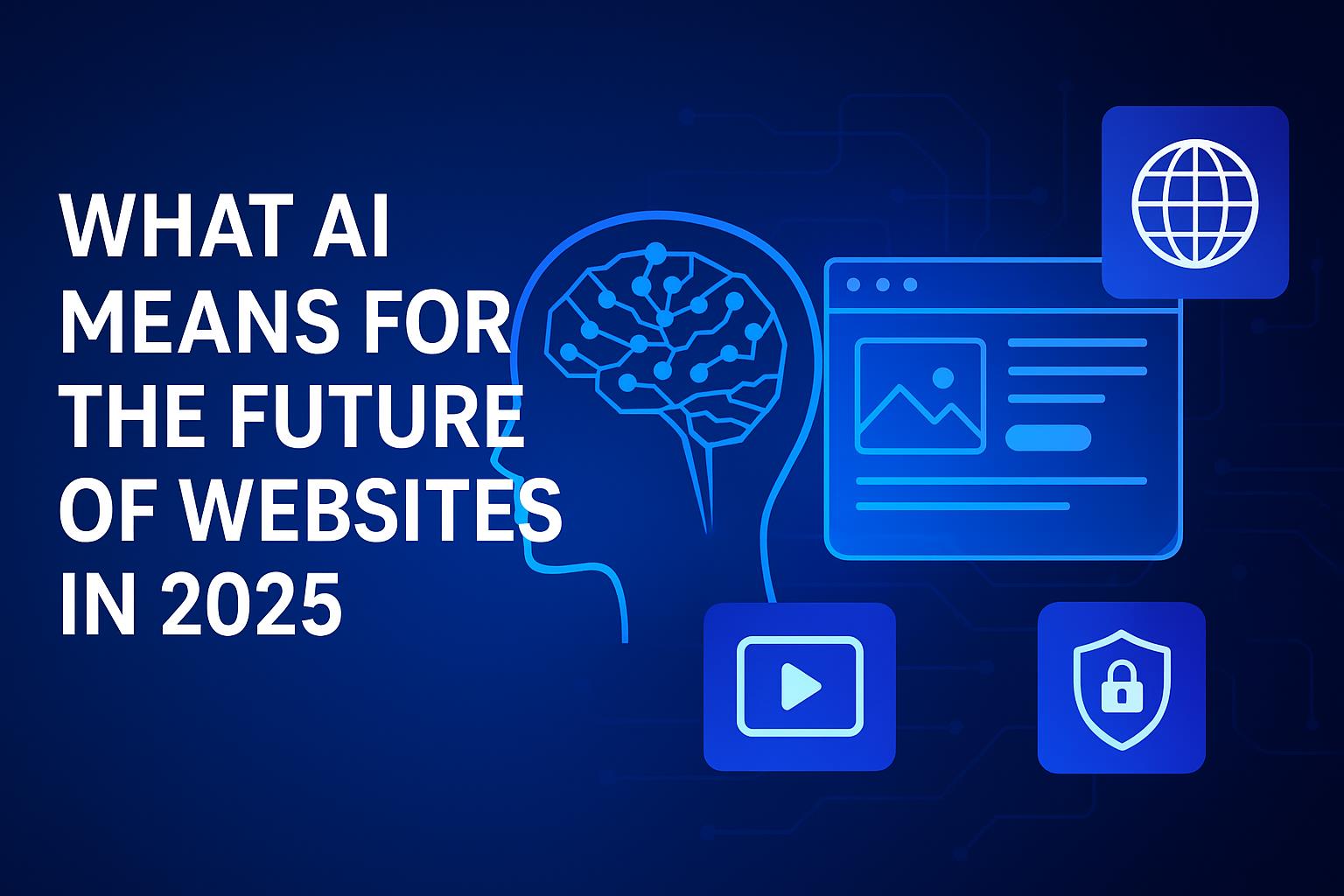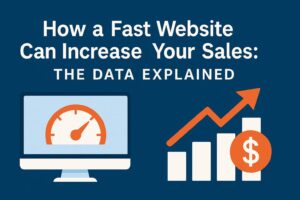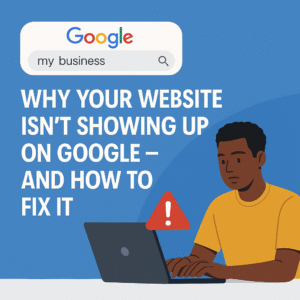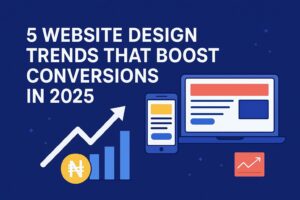Introduction
Artificial Intelligence (AI) has moved far beyond being just a buzzword—it is now at the heart of digital transformation. In 2025, AI is shaping the way businesses design, manage, and optimize their websites. Whether it’s improving customer experience, automating SEO, or enabling hyper-personalization, AI is redefining what websites can achieve.
This article explores what AI means for the future of websites in 2025, and how small businesses, entrepreneurs, and enterprises can benefit from these innovations.
1. Personalized User Experiences
AI allows websites to analyze user behavior in real time and provide tailored experiences. From product recommendations to personalized landing pages, businesses can create deeper connections with customers.
Example: An e-commerce website using AI can recommend products based on browsing history, past purchases, and even predictive behavior.
Learn more about personalized website design.
2. AI-Powered Chatbots and Virtual Assistants
Customer service has gone AI-first in 2025. Websites now feature intelligent chatbots that answer questions, process orders, and even handle complaints 24/7.
Benefits:
Reduces wait times
Cuts customer service costs
Enhances overall satisfaction
Tools like Drift and Intercom AI bots are leading this revolution.
3. Smarter SEO with AI
Search engine optimization (SEO) is no longer just about keywords. With AI-driven tools like Surfer SEO and Semrush AI, websites can now:
Predict what content ranks best
Analyze search intent in real-time
Automate technical SEO audits
This ensures your site remains visible on Google and competitive in a crowded market.
Related: Why your website isn’t showing up on Google – and how to fix it.

4. Voice Search Optimization
With smart devices and voice assistants on the rise, AI helps websites adapt to voice-based search queries. By 2025, nearly 60% of searches are voice-activated, making AI-powered optimization critical.
Businesses must focus on conversational keywords and structured data to stay ahead.
5. AI in Website Security
Cybersecurity threats are evolving, but so are AI defenses. Websites are now protected by AI-driven monitoring systems that detect unusual activity and block attacks before they happen.
For small businesses, this means reduced risk of data breaches and fraud, giving customers more trust.
6. Automated Content Creation
AI tools like ChatGPT, Jasper, and Copy.ai are helping websites generate:
Blog posts
Product descriptions
Landing page copy
This speeds up content production while maintaining relevance and SEO quality.
7. Predictive Analytics for Conversions
AI helps businesses analyze website traffic and predict customer behavior, making it easier to optimize sales funnels. With tools like Google Analytics AI and Adobe Sensei, you can reduce bounce rates and increase conversions.
Conclusion
In 2025, websites are no longer static platforms—they are intelligent, adaptive, and customer-focused ecosystems. AI is not replacing human creativity but enhancing it, allowing businesses to deliver better experiences, improve SEO, and stay competitive in a digital-first world.
If you want to future-proof your business website, consider AI-powered design, automation, and security solutions.



